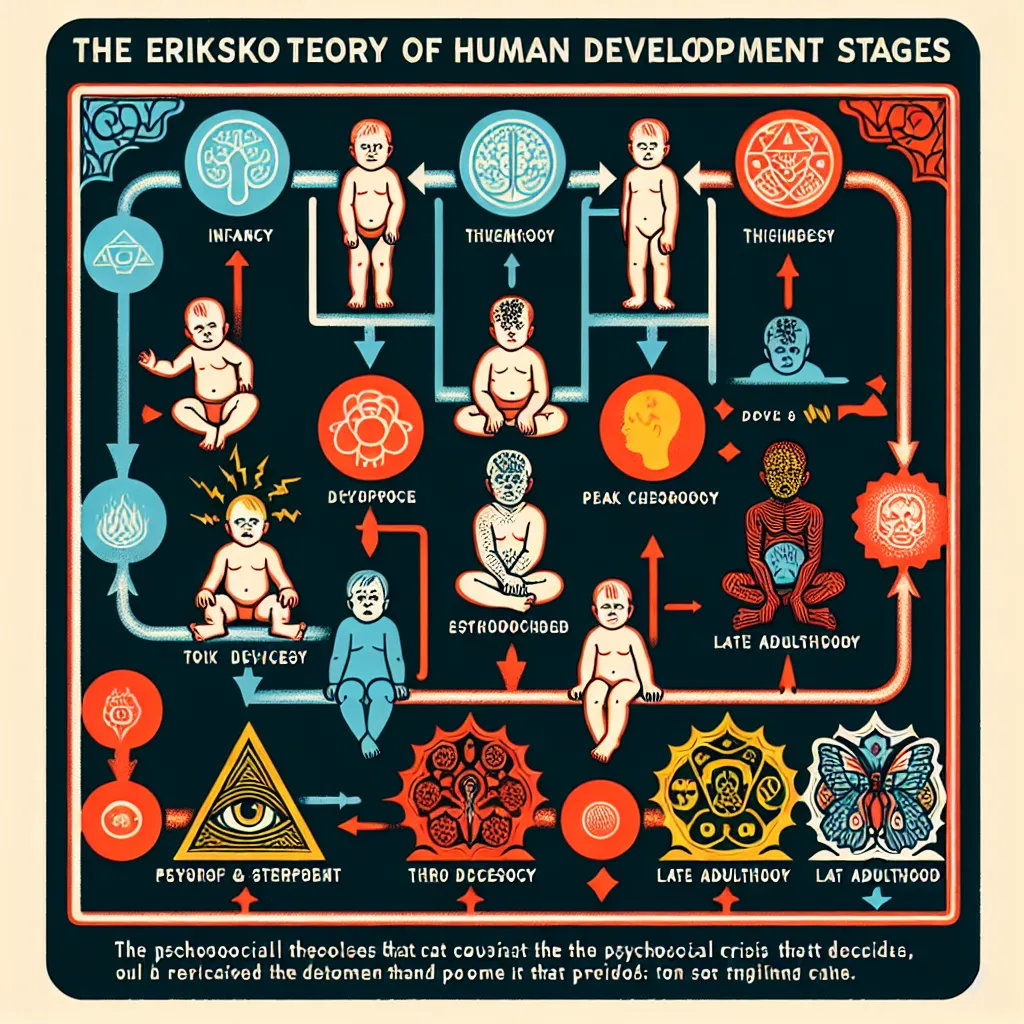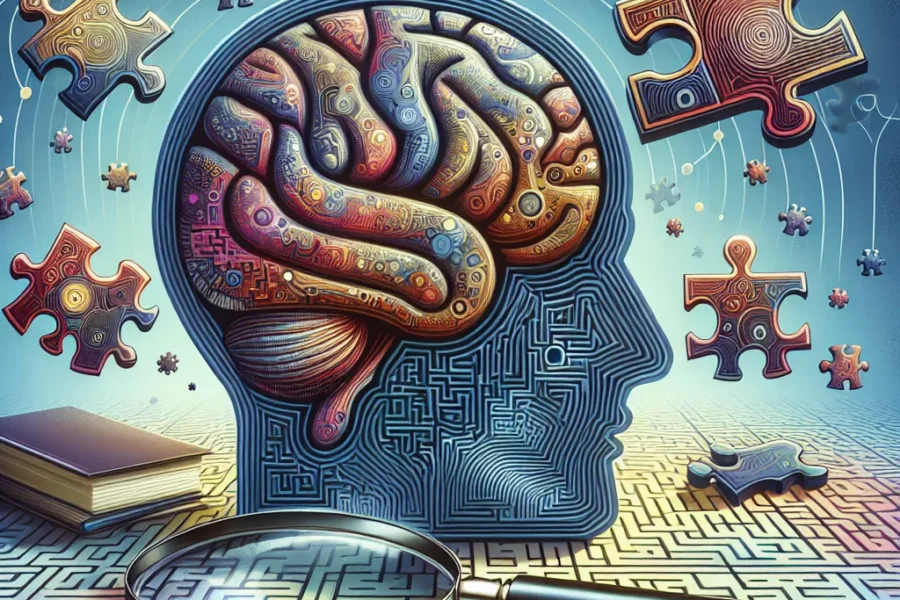Erik Erikson’s Insights into Human Development
Erik Erikson, a prominent figure in the field of psychology, is renowned for his revolutionary contributions to our understanding of human development. His psychosocial theory has profoundly influenced how psychologists and educators view growth, personality, and identity formation throughout the lifespan. In this article, we will delve into Erikson’s groundbreaking perspective on human development, exploring the eight stages of psychosocial development that he identified, and the lasting impact his insights have on the world of psychology today.
Erikson’s theory extends from birth to old age, focusing on the social and emotional challenges that individuals face at different periods in their lives. According to Erikson, at each stage, a person encounters and hopefully masters new challenges. Each stage builds upon the successful completion of earlier stages. The challenges of stages not successfully completed may be expected to reappear as problems in the future.
The first stage, known as Trust vs. Mistrust, occurs between birth and approximately 18 months of age. During this period, infants learn whether or not they can trust the world through the consistency and quality of their caregivers’ provision and affection. If a child successfully develops trust, they will feel safe and secure in the world. Conversely, mistrust develops when a child’s needs are not consistently met.
The second stage, Autonomy vs. Shame and Doubt, happens during early childhood and is centered on developing a greater sense of personal control. As toddlers, children begin to assert their independence, by walking away from their mother, picking which toy to play with, and making choices about what they like to eat. If children are encouraged and supported in their increased independence, they become more confident and secure in their ability to survive in the world. However, if children are criticized, overly controlled, or not given the opportunity to assert themselves, they begin to feel inadequate in their ability to survive and may become overly dependent on others, lack self-esteem, and feel a sense of shame or doubt in their abilities.
During the preschool years, the third stage of Initiative vs. Guilt unfolds, where children assert themselves more frequently. They begin to plan activities, make up games, and initiate activities with others. If given this opportunity, children develop a sense of initiative and feel secure in their ability to lead others and make decisions. Conversely, if this initiative is not encouraged, if it’s restricted by parents or teacher, then the child begins to feel inferior, doubting his own abilities and therefore may not reach his potential.
The fourth stage of Erikson’s model, Industry vs. Inferiority, occurs during the early school years from approximately age 5 to 11. Children learn to read, write, do sums, do things on their own, and develop a sense of pride in their accomplishments. They also begin to compare themselves with their peers to see how they measure up. If children are encouraged and reinforced for their initiative, they begin to feel industrious and feel confident in their ability to achieve goals. If this initiative is not encouraged, if they are restricted or if teachers and parents do not encourage this developmental stage, children begin to feel inferior, doubting their abilities which can lead to poor self-esteem and lack of motivation.
The fifth stage, Identity vs. Confusion, occurs during adolescence from approximately 12 to 18 years of age. This is a major stage in development where the child has to learn the roles he will occupy as an adult. It is during this stage that the adolescent will re-examine his identity and try to find out exactly who he or she is. Erikson suggests that two identities are involved: the sexual and the occupational. If adolescents successfully navigate this stage, they emerge with a strong sense of self and a feeling of independence and control. If they remain unsure of their beliefs and desires, they may feel insecure and confused about themselves and the future.
The sixth stage, Intimacy vs. Isolation, focuses on establishing intimate, loving relationships with other people. This occurs in young adulthood between the ages of approximately 18 to 40. Erikson believed it was vital that people develop close, committed relationships with other people, which are not necessarily romantic relationships, but also include close friendships and family connections. Successfully finding accommodation and balance in this stage leads to productive, caring and fulfilling relationships. Failure, on the other hand, can result in feelings of loneliness and emotional isolation.
The seventh stage is Generativity vs. Stagnation, which occurs during middle adulthood between ages approximately 40 to 65. During this time, adults strive to create or nurture things that will outlast them; often by having children or creating a change that benefits other people. Through generativity, people can positively influence the next generation. In contrast, failure to achieve these objectives leads to shallow involvement in the world, and can result in stagnation.
The final stage of Erikson’s theory is Ego Integrity vs. Despair, which occurs during old age from approximately 65 years of age until death. This is when individuals contemplate their accomplishments and can develop integrity if they see themselves as leading a successful life. If they see their life as unproductive, or feel that they did not accomplish their life goals, they become dissatisfied with life and develop despair, often leading to depression and hopelessness.
Erikson’s legacy in developmental psychology is profound. His insights go beyond mere childhood development and extend into the adult years, offering a comprehensive framework that helps explain both successes and challenges that people might face throughout life. By better understanding Erikson’s stages, individuals can reflect upon their own growth, educators and parents can better support the developmental stages, and psychologists can more effectively guide their clients towards a healthier sense of self.
In today’s society, where individuals continuously face new challenges and adaptations, Erikson’s stages offer a timeless lens through which we can interpret human growth and the quest for identity. His work lays the foundation for understanding that each stage of life contributes to the next and that personal development is a lifelong process. Furthermore, Erikson’s theory has paved the way for subsequent theories and research in developmental psychology, affirming the value of his psychosocial approach to human development.
As we continue to explore and validate Erikson’s insights into human development, we find that his impact transcends the confines of theoretical psychology and influences practical and therapeutic approaches to fostering healthy development. By ensuring our understanding and appreciation of each stage, and addressing any challenges that may have been unresolved during a stage, we encourage growth and well-being throughout the entirety of our lives.
Erikson’s insights also remind us of the importance of society’s role in the development of its individuals. His psychosocial development theory underscores the fact that personal growth and identity formation are deeply embedded in and influenced by the social context. This reinforces the idea that social policies and cultural norms have a direct effect on the psychosocial development of individuals and by extension, the health of society as a whole.
In conclusion, Erik Erikson’s insights into human development have significantly contributed to our understanding of the human experience. His eight stages of development serve as a guide to help both individuals and professionals navigate through the complexities of growth and change. In a rapidly evolving world that presents new obstacles and challenges to personal development daily, Erikson’s work continues to resonate and provide valuable guidance for achieving a wholesome and fulfilling life journey. By adopting a psychosocial approach to development, we can better appreciate the intricate interplay between individual needs and societal pressures, allowing us to foster resilience and strength in the face of adversity. Erikson’s legacy thus remains pivotal in guiding future generations towards a deeper comprehension of themselves and the world around them.



Leave a Comment